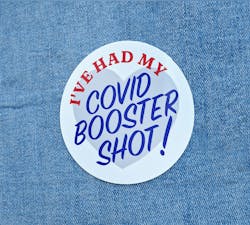Two CDC studies analyze effectiveness of COVID-19 vaccines over time
Data from two reports from the Centers for Disease Control and Prevention (CDC) show COVID-19 vaccine boosters remain safe and continue to be highly effective against severe disease over time, the agency said in a news release.
In the first study, the CDC said it reviewed data from two of its vaccine safety monitoring systems, v-safe and the Vaccine Adverse Event Reporting System (VAERS). Researchers found that people 18 years and older who received the same mRNA vaccine brand for all their vaccinations experienced fewer adverse reactions following the booster dose than they did after their second dose of mRNA vaccine. Of the reports to VAERS, 92% were not considered serious. Headache, fever, and muscle pain were among the most commonly reported reactions. V-safe data found medical care was rarely received after a booster dose.
A second study found that a third dose of mRNA vaccine provides high levels of protection against severe disease, even months after administration. The CDC examined data on 93,000 hospitalizations and 241,000 emergency department and urgent care visits across 10 states during the Delta and Omicron waves. In the study, about 10% of people were boosted and over 50% of people hospitalized were over 65 years old. During Omicron, vaccine effectiveness against hospitalization was 91% during the first two months after a third dose and remained high, at 78%, four or more months after a third dose.

